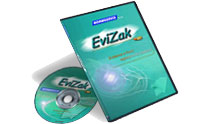Wir benötigen Ihre Einwilligung zur Verwendung der einzelnen Daten, damit Sie unter anderem Informationen zu Ihren Interessen einsehen können. Klicken Sie auf "OK", um Ihre Zustimmung zu erteilen.
ASTM E1256-11a
Standard Test Methods for Radiation Thermometers (Single Waveband Type) (Includes all amendments And changes 7/9/2015).
Automatische name übersetzung:
Standard-Prüfverfahren für Strahlungsthermometer (Einzelwellenbereich Type)
NORM herausgegeben am 1.5.2011
Informationen über die Norm:
Bezeichnung normen: ASTM E1256-11a
Anmerkung: UNGÜLTIG
Ausgabedatum normen: 1.5.2011
SKU: NS-41034
Zahl der Seiten: 7
Gewicht ca.: 21 g (0.05 Pfund)
Land: Amerikanische technische Norm
Kategorie: Technische Normen ASTM
Die Annotation des Normtextes ASTM E1256-11a :
Keywords:
blackbody, calibration, field-of-view, long-term stability, radiation thermometer, radiometer, repeatability, response time, temperature, warm-up time, waveband, Blackbody, Calibration--temperature analysis instrumentation, Iris diaphragm diameter, Long-term drift, Radiation thermometers, Radiometers, Response time, Target size, Thermometers, Warm-up time, Waveband, ICS Number Code 17.200.20 (Temperature-measuring instruments)
Ergänzende Informationen
| Significance and Use | ||||
|
The purpose of these test methods is to establish consensus test methods by which both manufacturers and end users may make tests to establish the validity of the readings of their radiation thermometers. The test results can also serve as standard performance criteria for instrument evaluation or selection, or both. The goal is to provide test methods that are reliable and can be performed by a sufficiently skilled end user or manufacturer in the hope that it will result in a better understanding of the operation of radiation thermometers and also promote improved communication between the manufacturers and the end users. A user without sufficient knowledge and experience should seek assistance from the equipment makers or other expert sources, such as those found at the National Institute of Standards and Technology in Gaithersburg, Maryland. Use these test methods with the awareness that there are other parameters, particularly spectral range limits and temperature resolution, which impact the use and characterization of radiation thermometers for which test methods have not yet been developed. Temperature resolution is the minimum simulated or actual change in target temperature that results in a usable change in output or indication, or both. It is usually expressed as a temperature differential or a percent of full-scale value, or both, and usually applies to value measured. The magnitude of the temperature resolution depends upon a combination of four factors: detector noise equivalent temperature difference (NETD), electronic signal processing, signal-to-noise characteristics (including amplification noise), and analog-to-digital conversion “granularity.” Spectral range limits are the upper and lower limits to the wavelength band of radiant energy to which the instrument responds. These limits are generally expressed in micrometers (μm) and include the effects of all elements in the measuring optical path. At the spectral response limits, the transmission of the measuring optics is 5 % of peak transmission (see Fig. 1). |
||||
| 1. Scope | ||||
|
1.1 The test methods described in these test methods can be utilized to evaluate the following six basic operational parameters of a radiation thermometer (single waveband type): |
||||
| 2. Referenced Documents | ||||
|
Empfehlungen:
EEviZak – alle Gesetze einschließlich ihrer Evidenz in einer Stelle
Bereitstellung von aktuellen Informationen über legislative Vorschriften in der Sammlung der Gesetze bis zum Jahr 1945.
Aktualisierung 2x pro Monat!
Brauchen Sie mehr Informationen? Sehen Sie sich diese Seite an.




 Cookies
Cookies
